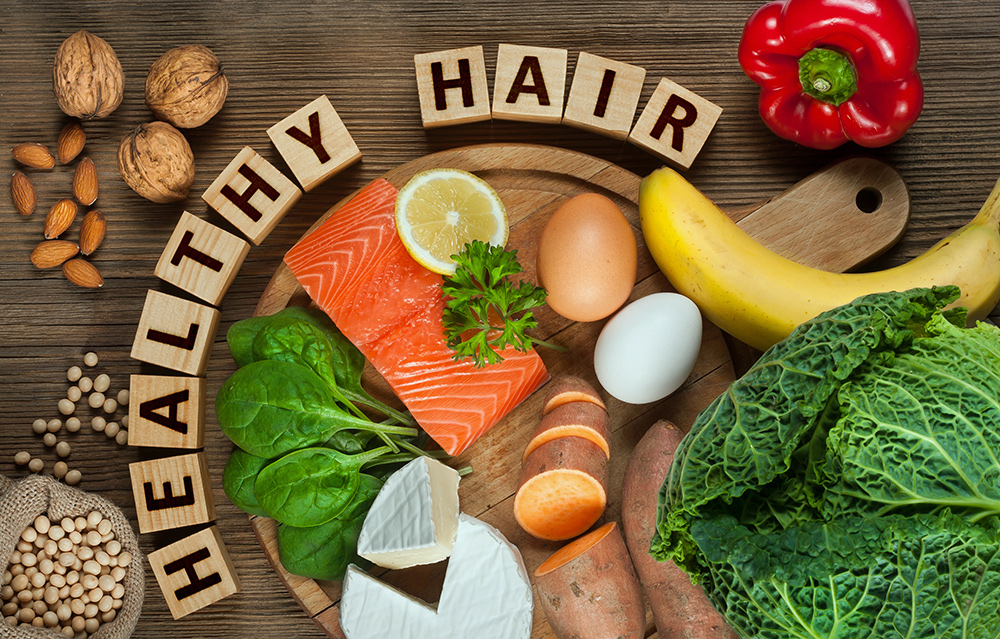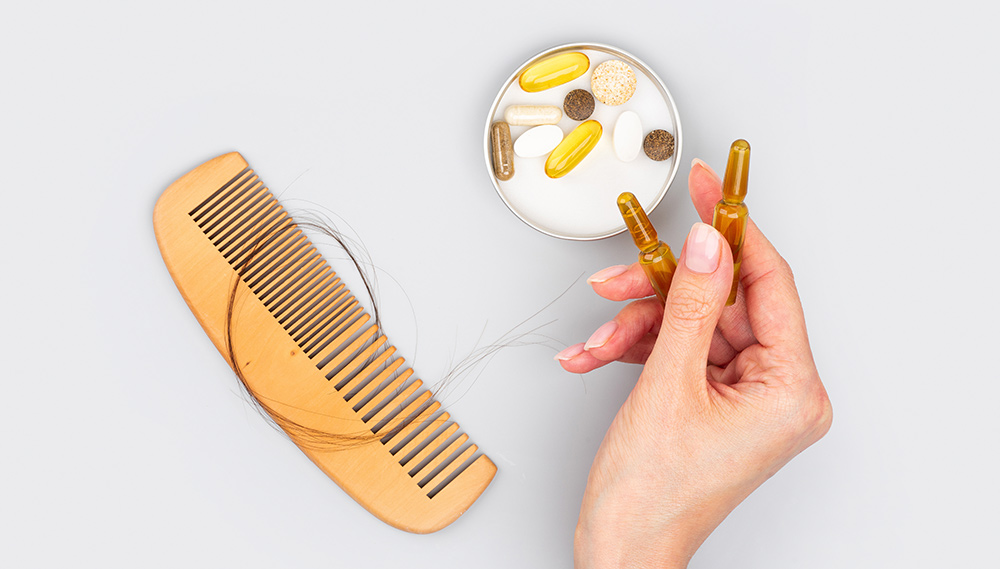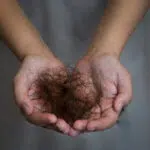Vitamin Deficiency and Hair Loss: Signs You Shouldn’t Ignore
Last updated on August 19, 2025
If you’ve noticed more hair in your brush, shower drain, or even on your pillow, you might be wondering what’s going on. While hair loss can be caused by various factors, one often overlooked culprit is vitamin deficiency. The right balance of nutrients is crucial for hair growth, and lacking key vitamins can weaken hair follicles, slow down growth, and even lead to shedding. So, let’s dive into which vitamin deficiency causes hair loss, the signs to watch for, and what you can do about it. There are about 31 nutrients that can be evaluated to determine which, if any, you are deficient. The shotgun approach is not recommended, where you take a handful of vitamins and hope for the best. This can result in many side effects from vitamin excess. This is especially true when taking excess fat-soluble vitamins such as A, D, E, & K. Non-fat-soluble vitamins can also be problematic. For example, Vitamin B12 can result in chronic insomnia, which can cause hair loss. Vitamin supplementation is never a substitute for consuming a healthy plant-based diet.
The Connection Between Vitamin Deficiency and Hair Loss
Your hair, just like the rest of your body, relies on a steady supply of nutrients to stay healthy. When your diet lacks essential vitamins and minerals, your hair may be one of the first places you notice the impact. That’s because your body prioritizes vital organs over hair growth, meaning your strands don’t get the nutrients they need to thrive.
Deficiencies in specific vitamins can disrupt the hair growth cycle, leading to increased shedding, thinning, or brittle strands. Here are some of the most common vitamin deficiencies linked to hair loss:
1. Iron Deficiency (Anemia)
Iron plays a crucial role in transporting oxygen to your hair follicles. When iron levels drop, oxygen supply to the hair roots decreases, leading to hair thinning and excessive shedding.
Signs of iron deficiency hair loss:
- Diffuse thinning (even spread across the scalp)
- Increased hair shedding
- Feeling fatigued or weak Brittle nails and pale skin
What to do: If you suspect iron deficiency, ask your doctor for a blood test. Iron-rich foods like red meat, spinach, lentils, and fortified cereals can help boost your levels. In some cases, supplements may be necessary. It is not recommended to supplement with iron unless you are deficient in iron. High iron can result in hair loss and other organ failure.
2. Vitamin D Deficiency
Vitamin D is essential for creating new hair follicles. Low levels of this vitamin have been linked to conditions like alopecia areata (an autoimmune form of hair loss) and general hair thinning.
Signs of vitamin D deficiency hair loss:
- Thinning hair, particularly at the crown
- Patchy hair loss
- Mood changes, such as depression or fatigue
- Bone pain or muscle weakness
What to do: Sunlight is the best natural source of vitamin D, but if you’re not getting enough, consider eating more fatty fish (salmon, mackerel), eggs, or fortified dairy products. A vitamin D supplement may also be beneficial but can easily be taken in excess, which can be dangerous.
3. Biotin (Vitamin B7) Deficiency
Biotin is a well-known vitamin for hair health, playing a role in keratin production (the protein that makes up hair). A deficiency can lead to brittle, weak hair and increased shedding.
Signs of biotin deficiency hair loss:
- Thinning hair or increased shedding
- Brittle nails Dry, scaly skin
- Fatigue and muscle pain
What to do: Biotin-rich foods include eggs, nuts, seeds, and sweet potatoes. While many hair growth supplements contain biotin, it’s best to get tested before taking high doses.
4. Vitamin B12 Deficiency
Vitamin B12 is essential for red blood cell formation, energy production, and oxygen transport to the scalp. A deficiency can slow hair growth and cause hair loss due to poor follicle oxygenation.
Signs of vitamin B12 deficiency hair loss:
- Hair thinning or increased shedding
- Fatigue and weakness
- Tingling in hands and feet
- Memory problems or difficulty concentrating
What to do: B12 is primarily found in animal products like meat, eggs, and dairy. If you’re vegan or vegetarian, consider a B12 supplement or fortified foods. Excess supplementation can result in chronic insomnia that can cause hair loss.
5. Zinc Deficiency Zinc
is a crucial mineral for hair tissue growth and repair. It also helps keep the oil glands around hair follicles working properly. A lack of zinc can lead to hair loss and even scalp issues like dandruff.
Signs of zinc deficiency hair loss:
- Hair shedding and thinning
- Slow hair regrowth
- Scalp irritation or dandruff
- Weakened immune system (frequent colds or infections)
What to do: Foods rich in zinc include oysters, beef, pumpkin seeds, and chickpeas. Zinc supplements can help, but too much zinc can actually cause hair loss, so stick to recommended doses.
6. Vitamin A Excess or Deficiency
Vitamin A helps produce sebum, the scalp’s natural oil, which keeps hair hydrated. However, too much or too little vitamin A can contribute to hair loss.
Signs of vitamin A imbalance hair loss:
Dry, brittle hair Increased shedding Itchy or flaky scalp Vision issues (in severe deficiency cases)
What to do: Balance is key—too little vitamin A can slow hair growth, while too much can trigger hair shedding. Good sources include carrots, sweet potatoes, and leafy greens.

Your hair, just like the rest of your body, relies on a steady supply of nutrients to stay healthy.
7. Protein Deficiency
While not a vitamin, protein is essential for hair structure. A lack of protein can lead to hair weakening and increased shedding.
Signs of protein deficiency hair loss:
Hair that feels weak or brittle Slow hair growth Increased breakage Loss of muscle mass
What to do: Include lean meats, fish, dairy, eggs, beans, and nuts in your diet. If you’re vegetarian or vegan, focus on high-protein plant foods like tofu, quinoa, and lentils.
How to Prevent Hair Loss Due to Vitamin Deficiency
If you suspect your hair loss is due to a vitamin deficiency, here are some steps to take:
- Get Tested – A simple blood test can reveal deficiencies in iron, vitamin D, B12, and other key nutrients.
- Eat a Balanced Diet – A diet rich in whole foods, including leafy greens, lean proteins, healthy fats (plant and seafood), and whole grains, provides the vitamins and minerals your hair needs.
- Consider Supplements – If your diet isn’t enough, targeted supplements can help, but always consult a healthcare professional before starting and during supplementation, as well as repeated nutrient analysis.
- Manage Stress – High stress can deplete essential nutrients and contribute to hair loss.
- Stay Hydrated – Drinking enough water helps transport nutrients to hair follicles and keeps your scalp healthy.
- Get a Hair Loss Evaluation – While diet can cause hair loss, there are many other reasons your hair may fall out, including genetic factors like female pattern hair loss or male pattern balding. It’s best to get a free consultation at a hair loss clinic to discover the root cause and develop a tailored treatment plan.

At AZ Hair Restoration in Raleigh, Wake County, you can get a free hair loss consultation with a specialist doctor to find out why your hair is falling out. We can provide you with non-surgical and surgical hair restoration treatments, including Minoxidil, Rogaine, Growth Factor Therapy, and hair transplants.
Hair Loss is Reversible
Hair loss due to vitamin deficiency can be reversible with the right diet and supplementation. If you’re experiencing hair thinning or excessive shedding, take a closer look at your nutrition and consult with a doctor to identify any deficiencies. Your hair is a reflection of your overall health, so nourishing your body with the right vitamins and minerals can make a huge difference in hair strength, growth, and overall well-being.
If you’re still struggling with male hair thinning or female hair loss despite addressing deficiencies, it might be time to seek professional advice. Personalized hair restoration treatments can help restore and maintain hair health, giving you the confidence you deserve. Get your free consult today!
FAQs
Can vitamin deficiencies cause permanent hair loss?
Vitamin deficiencies can lead to temporary hair shedding, but in most cases, hair regrows once nutrient levels are restored. However, prolonged deficiencies may weaken follicles, making hair loss harder to reverse. If your hair isn’t growing back, consider consulting a specialist for personalized treatment. Book a consultation today to explore hair loss treatments for women and men with thinning hair!
How long does it take to reverse hair loss from a vitamin deficiency?
Hair regrowth depends on how severe the deficiency is and how quickly you restore nutrients. Most people notice improvements in 3 to 6 months with a balanced diet and supplements. If hair loss persists, professional treatments may be needed. Get expert advice on restoring hair health—schedule a consultation now at a leading Raleigh hair loss clinic!
What’s the best diet for preventing vitamin deficiency hair loss?
A diet rich in iron, vitamin D, biotin, B12, and zinc supports healthy hair growth. Include lean meats, eggs, nuts, leafy greens, fish, raw vegetables, and whole grains for optimal nutrition. If diet alone isn’t enough, supplements or professional treatments can help. Talk to a hair loss specialist today for personalized guidance!
Are hair supplements effective for preventing hair loss?
Hair supplements can help if you have a confirmed vitamin deficiency, but they aren’t a cure-all. It’s best to get tested before taking supplements, as excess vitamins can also cause issues. If you’re unsure what’s causing your hair loss, schedule a free consultation to get a diagnosis and tailored solution today!
When should I see a doctor about hair loss?
If you’re experiencing excessive shedding, patchy bald spots, or hair thinning that isn’t improving, it’s time to seek professional help. A doctor can identify deficiencies and other underlying causes. Don’t wait—get expert advice on hair restoration options today!








